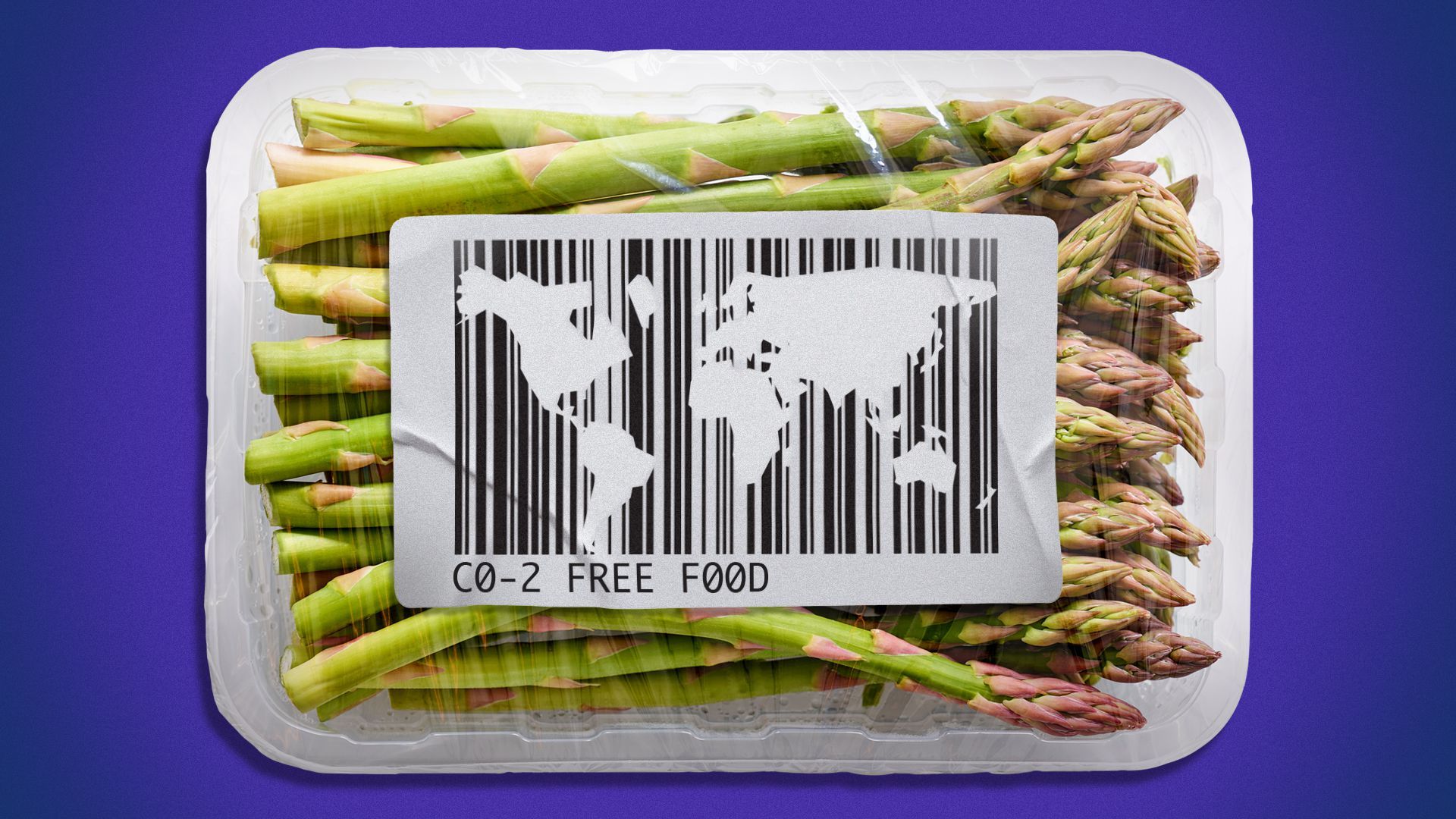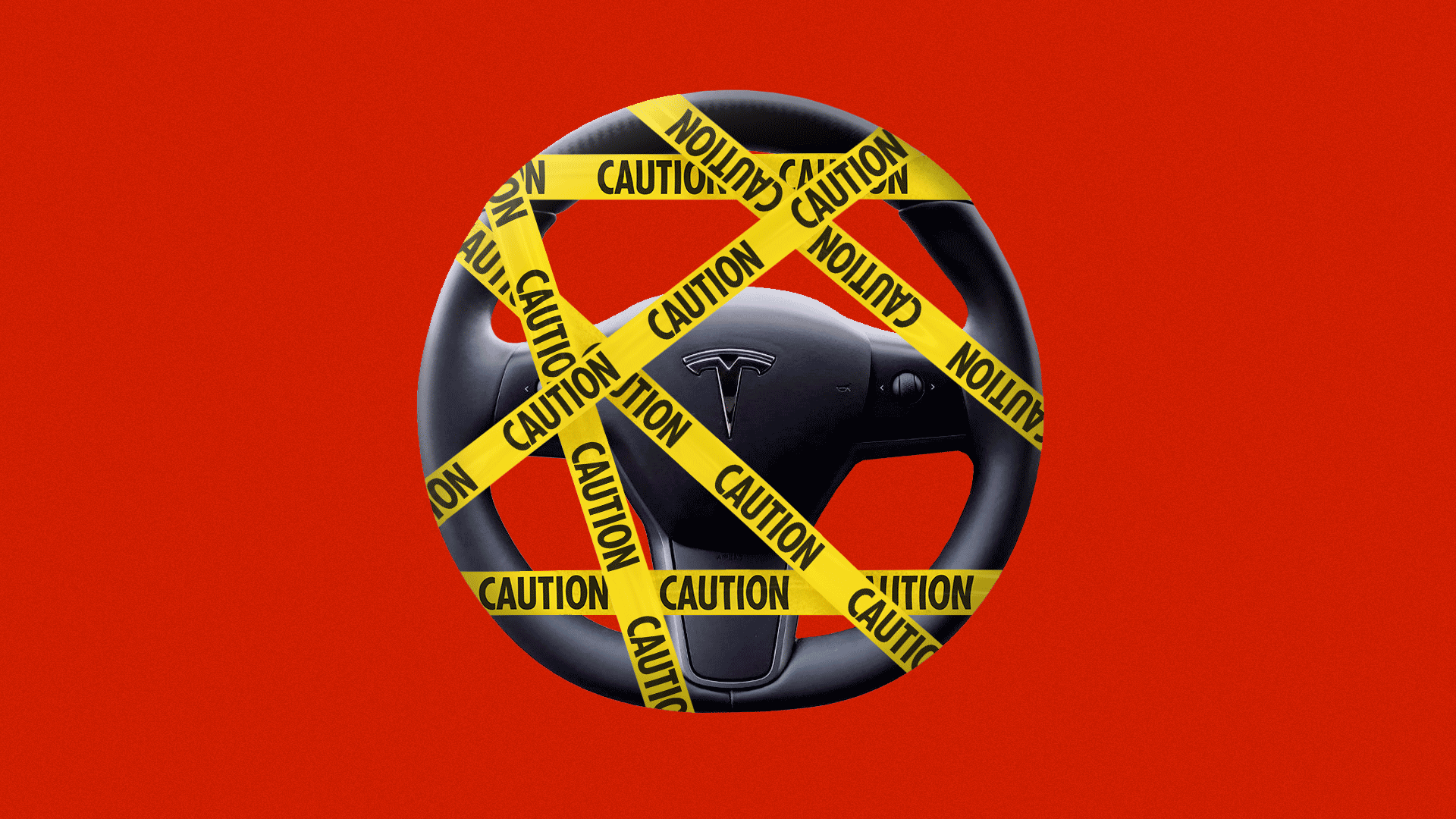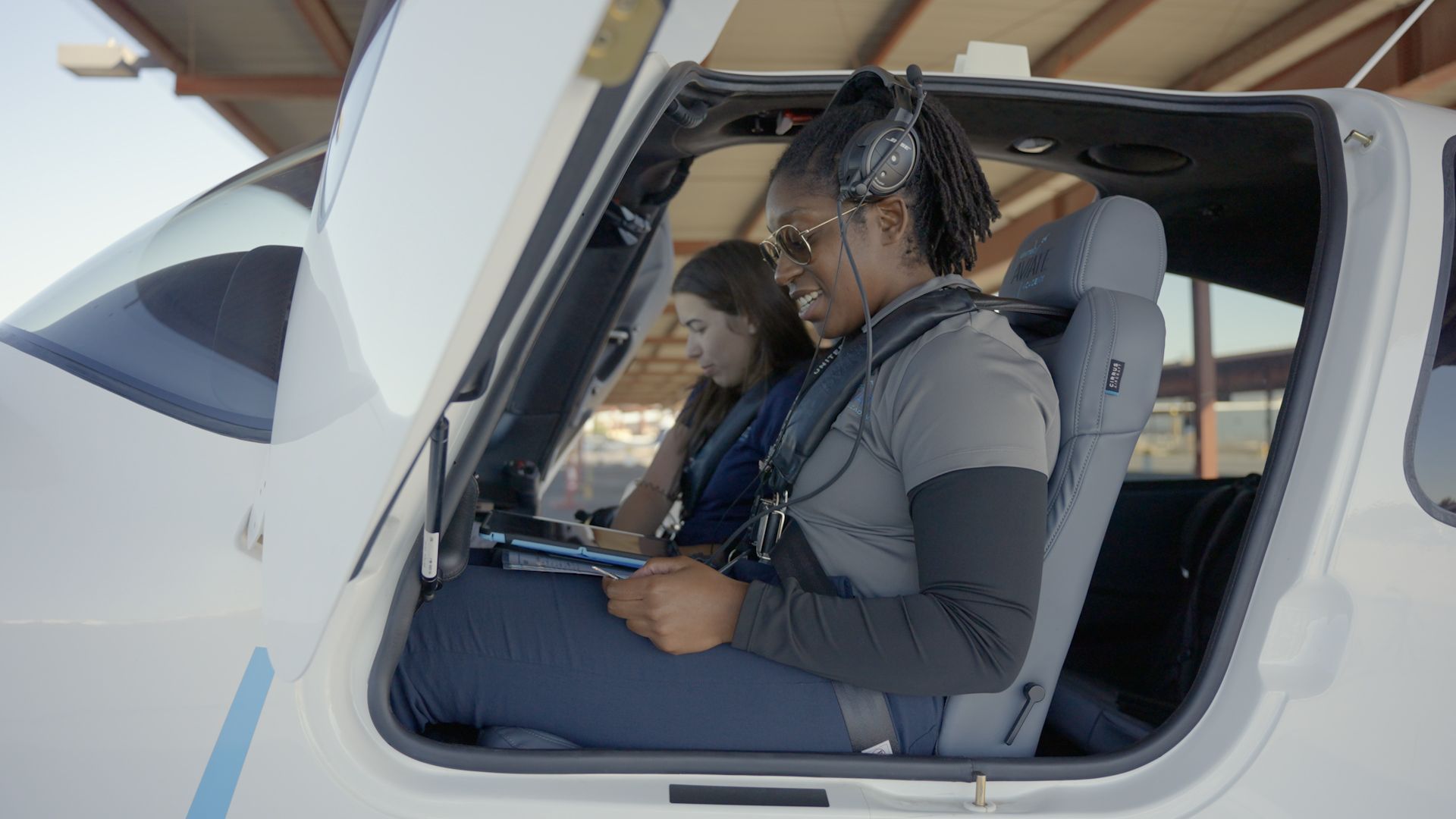| | | | | | | Presented By Deloitte | | | | Axios What's Next | | By Jennifer A. Kingson, Joann Muller and Alex Fitzpatrick · Jan 26, 2023 | | Are you a "climavore?" Perhaps a "reducetarian," or a "regenivore?" You just might be — if, that is, you've been eating with your environmental impact in mind. Today's newsletter is 1,182 words ... 4.5 minutes. | | | | | | 1 big thing: Eating better, for the planet |  | | | Illustration: Sarah Grillo/Axios | | | | Move over, locavores: A slew of new labels — from "climavore" to "reducetarian" — reflect the trend of people eating with sustainability in mind to reduce their climate "foodprint," Jennifer A. Kingson reports. Why it matters: Food manufacturers, restaurants, and supermarkets are racing to cater to the zeal for lower-carbon eating choices, which has people eschewing plastic packaging, ingredients flown in from afar, and foods that are environmentally damaging to produce. - While there's plenty of disagreement about what to avoid, top villains include faves like red meat, chocolate, avocados, sugar, and — gasp — coffee.
- The "eat local" mantra is being replaced by the notion that what you eat is more important — since transportation is sometimes just a small part of your meal's carbon footprint.
Driving the news: Terms like "climatarian" are getting newfound attention from corporate America as young consumers gravitate toward what they perceive as "green" diets. - "By 2030, our routine food choices will be climate-directed," advises a report from consulting firm Kearney. "The companies that mobilize now will win the future of food."
- Restaurant chains like Just Salad, Chipotle, and Panera Bread are putting "carbon labels" on their foods — and, in the case of Just Salad, adding a "climatarian" filter on its app.
- Supermarket chain Fresh Market is among the many food prognosticators that declared "climatarian eating" a top trend for 2023.
How it works: Climavores' rules "are not hard and fast," instead allowing "a level of flexibility, based on the preferences of those who partake," per Fresh Market's report. - "Participation can include everything from eating pasture-raised to buying more local and organic ingredients to reduce carbon emissions from transport, to eating a plant-based diet with crops that are good for soil."
There's a dizzying nomenclature affiliated with climate-conscious eating, with meaningful yet hard-to-parse differences. - "Sustainatarians" eat some meat but filter their diet through an environmental lens.
- So do "climatarians" and "climavores," who tend to be concerned — as one manifesto put it — "not only about the origin of ingredients, but also about the agency that those ingredients have in providing responses to human-induced climatic events."
- "Reducetarians" try to eat less meat for reasons ranging from animal welfare to their health or the environment.
- "They might be concerned about biodiversity loss, fresh water availability, or food justice — or trying to save money," Brian Kateman, president and co-founder of the Reducetarian Foundation, tells Axios.
What's trending: "Regenivore" is the latest and hottest eating label, the New York Times recently reported. - "A new generation wants food from companies that are actively healing the planet through carbon-reducing agriculture, more rigorous animal welfare policies, and equitable treatment of the people who grow and process food," per Times ace food writer Kim Severson.
Yes, but: Eyebrows must be raised about the amount of greenwashing involved in corporate efforts to embrace climatarianism. - The most common examples: Promoting a product as "organic" or "made from real ingredients" when it's actually from a factory farm or uses genetically modified ingredients.
Reality check: Despite the mushrooming number of calculators that help people gauge their carbon footprints, truly adhering to a climate-conscious diet takes work and restraint. The bottom line: The opacity of farming and food manufacturing procedures can make it hard to determine the provenance of one's meal or its true carbon footprint, but it may be true that every little bit helps. 💬 Jennifer's thought bubble: Throwing a dinner party has never been more of a minefield, with everyone's diet to consider (Noom? Vegevore? Ketogenic?). Best to check with your guests in advance. Share this story. |     | | | | | | 2. Ford and GM beat Tesla on driver-assist tech |  | | | Illustration: Aïda Amer/Axios | | | | Ford has the best assisted-driving system, based on the latest road testing by Consumer Reports, while Tesla's once industry-leading Autopilot technology fell to the middle of the pack, Joann Muller reports. How it works: Active driving assistance is basically the combination of two features: adaptive cruise control and lane-keeping technology. - Together, they provide speed and steering support to maintain a set distance from the vehicle ahead and to stay near the center of the lane.
What CR found: After testing 12 automakers' systems, Ford's BlueCruise ranked first, followed by General Motors' Super Cruise and Mercedes-Benz's Driver Assistance. Joann's thought bubble: I've tried many of these technologies, and prefer GM's over Ford's. It just feels more confident to me. - I asked Fisher why CR gave the edge to Ford. He emailed two reasons:
- "First, Ford allows drivers to collaboratively steer while the system is engaged to adjust the placement in the lane or avoid an obstacle."
- "Second, Ford allows the system to be used in far more locations than the GM system, but may require both the driver's hands on the wheel in addition to the eyes on the road requirement."
Read the rest. |     | | | | | | 3. United's first crop |  | | | A United Aviate Academy student. Photo courtesy of United Airlines | | | | United Airlines yesterday celebrated the first batch of graduates from its Aviate Academy program, a unique airline-owned flight school meant to shore up a diverse pilot pipeline, Alex Fitzpatrick reports. - Aviate's inaugural class included 51 students, 80% of whom are women or people of color, the airline says.
Why it matters: Pilots traditionally train and build hours at flight schools and in jobs outside the major airlines before applying. - But barriers to entry — like the sky-high price of training — have kept flight decks largely white and male.
- United and its partners are offering scholarships to help address those racial and gender gaps.
What's next: The Aviate graduates will work as flight instructors, charter pilots, or in other roles to build the 1,500 hours needed to become an airline pilot. What we're watching: How many Aviate Academy participants eventually make it to mainline United — a process that can take as long as six years. |     | | | | | | A message from Deloitte | | Don't just dream it — build it | | |  | | | | Unlock technology as powerful as your vision and push the boundaries of the possible with Deloitte. Our practiced human experience combined with innovative technology can help you build tomorrow — today. Let's build the future together. Learn how Deloitte can help you Engineer Advantage. | | | | | | 4. Almost everyone hates their job |  | | | Illustration: Sarah Grillo/Axios | | | | You can call it quiet quitting or whatever buzzword you like — but the bottom line is U.S. workers just aren't happy, Axios' Emily Peck reports. - Only 32% of employees said they were "actively engaged" at work, or feeling passionate about their jobs, according to a Gallup report out Wednesday, which averaged survey results across 2022.
- That's down from a high of 36% in 2020.
State of play: Young employees feel the most disconnected. - Engagement for those under 35 decreased by four percentage points, while active disengagement went up by the same amount.
Of note: Active disengagement jumped by seven points among workers with remote-friendly jobs who were forced to show up in person. Read the rest. |     | | | | | | 5. Hydrogen plane takes off |  | | | Photo Illustration: Lindsey Bailey/Axios | | | | Clean aviation startup ZeroAvia recently flew its first successful test of a 19-seat aircraft modified to use hydrogen fuel, Axios' Dave Lawler reports. Why it matters: Aviation accounts for about 3% of global carbon emissions — a share that will likely grow absent emissions-cutting solutions. What they're saying: ZeroAvia hopes to start delivering planes with up to 20 seats by 2025, and jets by 2029, CEO Val Miftakhov told Axios at Davos. - American Airlines, United Airlines, British Airways, and Alaska Airlines have placed orders, he said.
Reality check: That's an ambitious timeline that will require arduous regulatory approvals and new infrastructure at airports. The big picture: Other firms are racing to design and test electric and ammonia-powered planes. Read the rest. |     | | | | | | A message from Deloitte | | Let's build the future together | | |  | | | | In the business world, you can either build your own future or bet on someone else's. Stay a step ahead with the latest innovations in technology and the thinking to help you transform what's next into what's now. Don't just bet on the future, build it. Learn how Deloitte can help you Engineer Advantage. | | | | Big thanks to today's What's Next copy editor, Patricia Guadalupe. Was this email forwarded to you? Get your daily dose of What's Next by signing up here for our free newsletter. |  | | Are you a fan of this email format? Your essential communications — to staff, clients and other stakeholders — can have the same style. Axios HQ, a powerful platform, will help you do it. | | | | | | Axios thanks our partners for supporting our newsletters.
Sponsorship has no influence on editorial content. Axios, 3100 Clarendon Blvd, Arlington VA 22201 | | | You received this email because you signed up for newsletters from Axios.
To stop receiving this newsletter, unsubscribe or manage your email preferences. | | | Was this email forwarded to you?
Sign up now to get Axios in your inbox. | | | | Follow Axios on social media:    | | | | | |










No comments:
Post a Comment